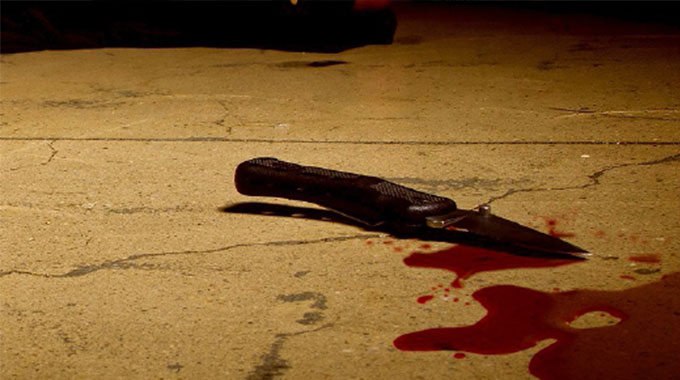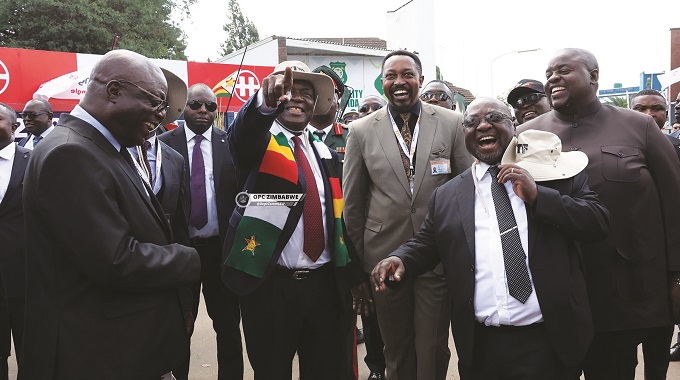Khami Dam water good for drinking

Nqobile Tshili, Chronicle Reporter
BULAWAYO City Council (BCC) has said tests have certified that Khami Dam water meets acceptable standards for drinking and is also considering a new aquifer which can supply the city with about 40 megalitres per day in Matobo.
Council conducted water tests for Khami Dam and results showed that the quality of the water is similar to that of Ncema Dam and meets Standard Association of Zimbabwe and World Health Organisation (WHO) raw water specifications.
Residents have previously objected council’s proposals to recycle Khami Dam water as it is polluted by human waste but council insists that advanced technologies can be employed to purify it.
In an article published in 2007, Zinwa said Khami Dam water was cleaner than that of Lake Chivero supplying the City of Harare.
Apart from Khami water, council officials say there is possibility of getting water from an aquifer in Matobo. They say despite the water being deep underground, Botswana, Somalia and Ethiopia have successfully drawn water from similar aquifers.
An aquifer is a body of porous rock or sediment saturated with groundwater.
Council officials briefed President Mnangagwa on Saturday about the new aquifer when they met him at State House in Bulawayo.
They expressed the city’s desire to have the aquifer as an additional water source for Bulawayo.
In an online media briefing yesterday, BCC’s engineering services deputy director Engineer Sikhumbuzo Ncube while a feasibility study on suitability and viability of Khami Dam water is set to be done, council has conducted tests on the water and results show that it can be purified.
“On the Khami water, under African Development Bank (AfDB), we have a funding slot to carry out a feasibility study for that but as BCC we have already done some assessment to see how much we can actually produce out of that. It’s coming to about almost 12 to 15 megalitres (per day) which we can realise from Khami Dam. Raw water quality results that we have produced from Khama Dam are almost similar to raw water quality results from Ncema Dam,” said Eng Ncube.
“I know it’s not something that is not easy to believe but they are within the Standard Association of Zimbabwe and World Health Organisation guidelines in terms of water quality. We are now slowly engaging different partners and investors to see how best we can further develop that project.”
Turning to the aquifer, Eng Ncube said it is within Matobo District and it is not like the usual underground water that the country is accustomed to drawing.
“This is deep seated water which you drill for 1 to 3 kilometres going down. So, there is a need for highly technologically advanced equipment like geographic information system (GIS) and other probing mechanisms which ensures that you can access it. The current position is that we have had meetings with experts that have done the same in Botswana, Somalia and so forth where they have actually drilled these boreholes and it has actually yielded results,” said Eng Ncube.
“At the horn of Africa, that area is very dry so when they drilled for two kilometres that’s when they managed to find fresh water, deep underground and it is supplying most of the areas in that country. So that is the same concept that we will like to employ for Bulawayo. We are in the process of coming up with a concept note working with Zinwa to access funding to carry out the feasibility study. But the understanding is that we can secure between 20 and 40 ML of water from that area.”
Contributing to the discussions, town clerk Mr Christopher Dube, expressed confidence in President Mnangagwa’s commitment to addressing the city’s water crisis.
He assured residents that while they endure water problems, a lot of projects were being undertaken behind the scenes to address the water crisis.
“We briefed the President on the water situation and the projects that were being undertaken and of course we highlighted to His Excellency, the President that there is discovery, there is a company that is saying they’ve done some desk work, 20KM, south of the city (Matobo) where they believe there is an aquifer which can yield quite a lot of water,” said Mr Dube.
“We tried to emphasise that this project is really important for us to undertake. We were asked to make our submissions which we are making at the moment and I’m sure once the submissions are made and the monies are made available, we are going to be able to undertake feasibility studies on this aquifer that we are referring to.”
He said after meeting with President Mnangagwa, council was advised that the Ministry of Finance and Economic Development has funds to do feasibility studies in the country which can be used in the Matobo project.
Mr Dube said council was looking forward to having the implementation of the feasibility study under Zinwa’s guidance.
“There is a lot that is being done and people should allow Government through Zinwa and BCC a chance. I want to assure the stakeholders that a lot is being done in the background. Government is very serious about the implementation of these projects as you are aware only two weeks ago, Government released $205 million for the three projects which is equivalent to US$2 million,” said Mr Dube.
“What we emphasised on when we met the President is that if we could have more allocation so that the three projects being implemented now are implemented concurrently. The President was also receptive to it.
With all the ministers who were there to make decisions and such decisions may be taken. The President made it clear that this is an emergency matter and it must be given the emergency it deserves.
“I’m sure all those who were present who are supposed to play their part will do so. I also want to mention the fact the President did listen to us and mentioned that he is aware of what is going on and is seized with the matter in his office. It gave that sense of security that the Government is really taking care of the water situation in Bulawayo.” — @nqotshili.










Comments